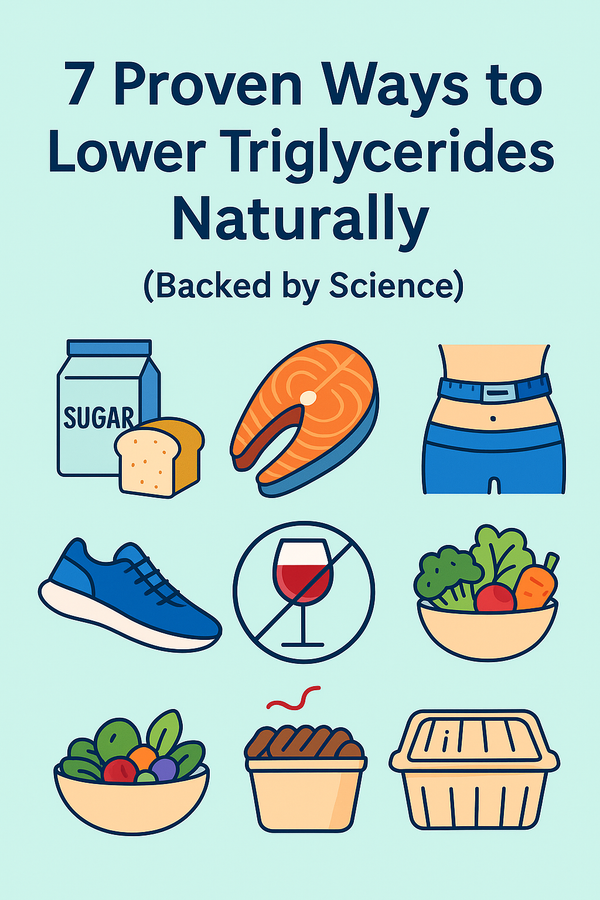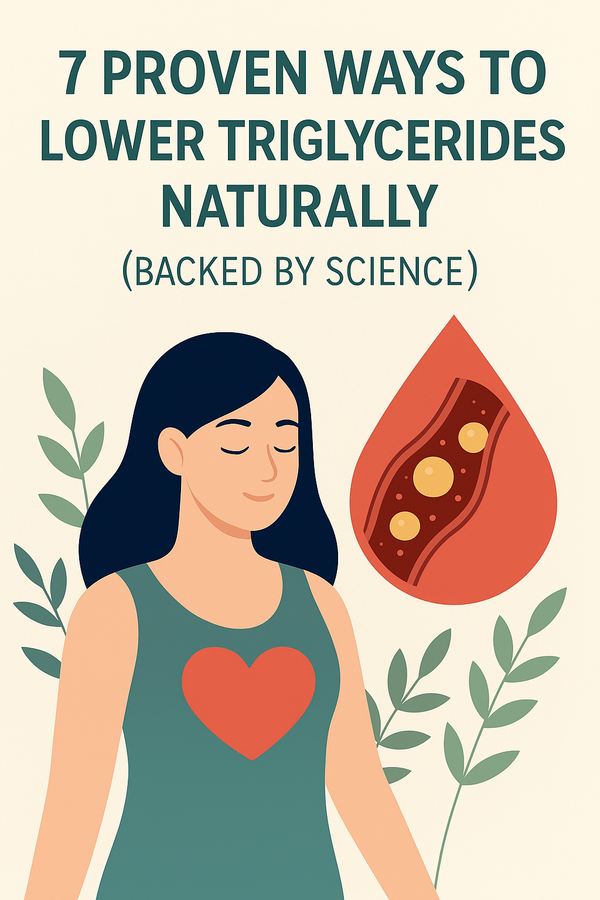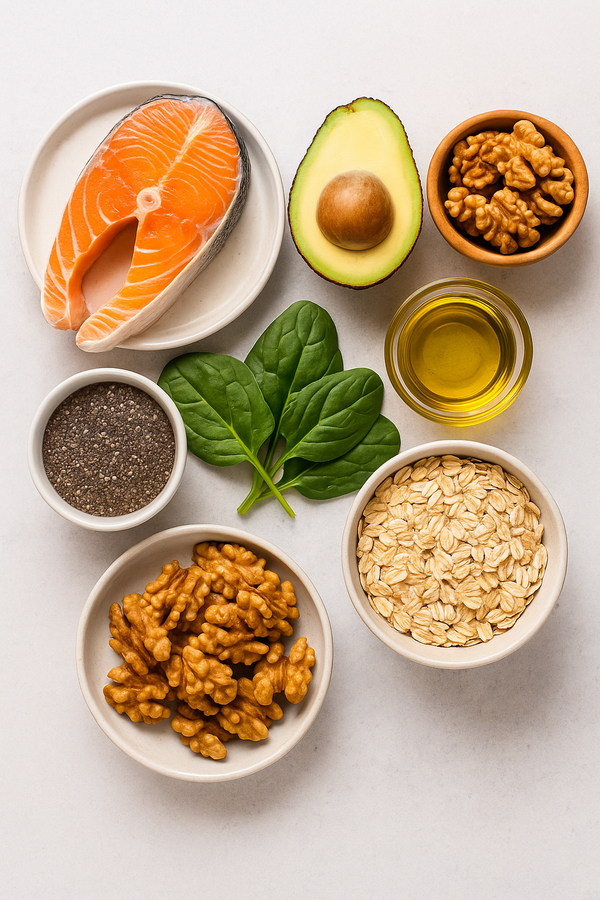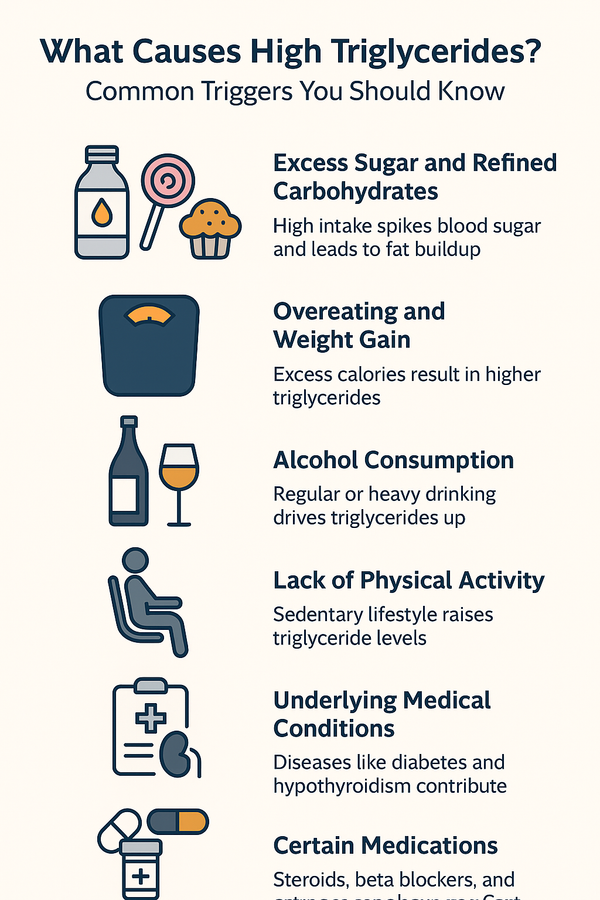7 Everyday Habits That Secretly Raise Your Triglycerides (and How to Fix Them)
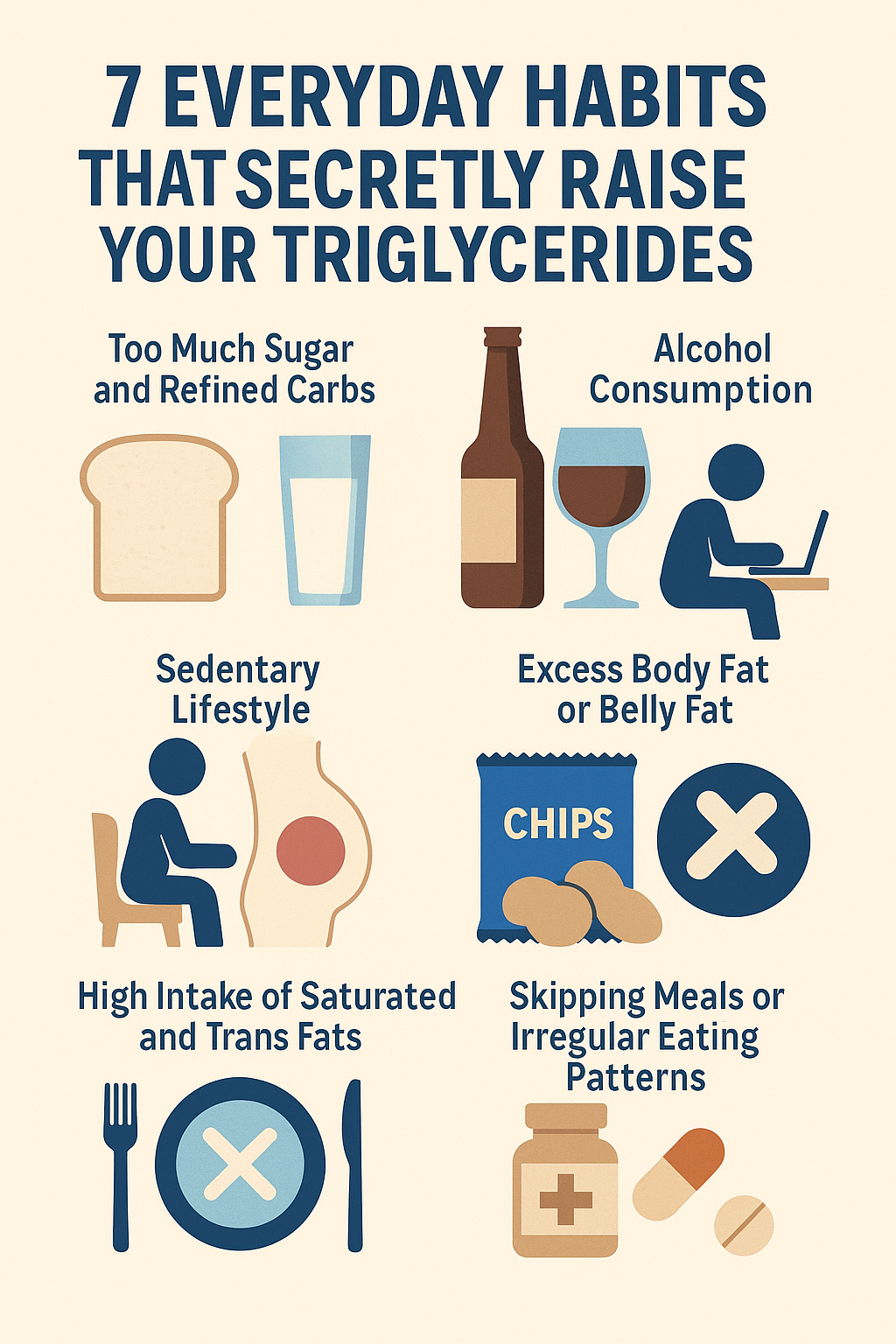
H1 Heading:
What Causes High Triglycerides? 7 Common Triggers You Might Be Ignoring
H2 Subheadings + Content:
1. Too Much Sugar and Refined Carbs
Foods like white bread, pastries, and sugary drinks spike your blood sugar and cause your liver to convert excess glucose into triglycerides, leading to elevated levels.
2. Alcohol Consumption
Even moderate alcohol intake can increase triglycerides, especially in people sensitive to its effects. Beer, wine, and cocktails all contribute.
3. Sedentary Lifestyle
Lack of physical activity reduces fat metabolism. Aim for at least 30 minutes of brisk walking or moderate exercise daily to lower triglyceride levels naturally.
4. Excess Body Fat or Belly Fat
Excess visceral fat is strongly linked to elevated triglycerides. A high waist circumference is a key warning sign, even if your BMI is normal.
5. High Intake of Saturated and Trans Fats
Processed snacks, fried foods, and fatty meats are full of unhealthy fats that increase triglyceride production in the liver.
6. Skipping Meals or Irregular Eating Patterns
Skipping breakfast or eating late at night may disrupt insulin balance and indirectly raise triglyceride levels.
7. Underlying Health Conditions or Medications
Hypothyroidism, kidney disease, diabetes, and certain medications (like diuretics or steroids) can elevate triglyceride levels.
Conclusion:
Managing triglycerides isn't just about diet. Everyday habits—from sleep and stress to when you eat—can influence your blood fat levels. Monitor regularly and take a holistic approach to health.
Meta Description:
High triglycerides aren’t just caused by fat. Discover 7 surprising lifestyle triggers that raise your levels and practical ways to reverse them.
